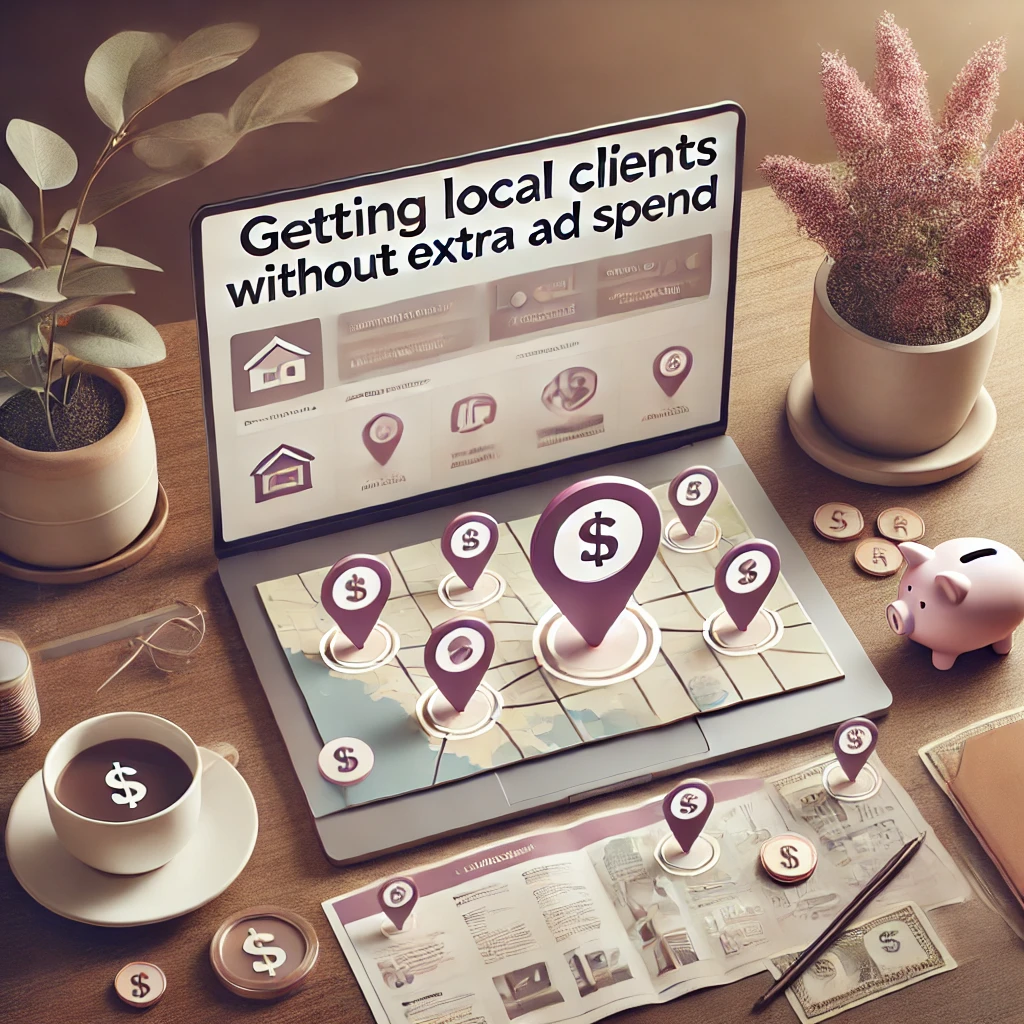Get website for your small business!
In today’s digital age, a website can be a game-changer for small businesses, acting as a tireless salesperson that’s available around the clock.
Many service-based businesses, like plumbers, home cleaners, and contractors, still rely on traditional word-of-mouth referrals to attract clients, which can be limiting. But what if there were a way to expand that reach and make your business accessible to clients even outside working hours?
A well-designed website can do just that—ensuring that your business remains “open” 24/7, ready to capture leads and build credibility.
Here’s how a professional website works as an around-the-clock salesperson for your small business and why it’s an investment that pays off.
1. Accessibility Anytime, Anywhere
A website is like a storefront that never closes. It provides potential clients with essential information about your business—your services, operating hours, contact information, and location—anytime they need it.
Whether it’s a homeowner searching for emergency plumbing at 2 a.m. or a family comparing cleaning services on a Sunday, your website is there to answer their questions, showcase your offerings, and convince them to reach out.
By having a dedicated service page, you give clients detailed descriptions of what you offer. They don’t have to wait until morning to know if you provide the services they need—they can find out right away, making them more likely to choose you.

On-Demand Information: Your site serves as a centralized hub for critical details about services, operating hours, and contact information, eliminating the need for prospective clients to wait until business hours.
Location Flexibility: Whether someone is researching at home or on the go, your mobile-friendly site allows users to explore your services without physical constraints, increasing the likelihood of immediate engagement.
Reduced Load Time: With optimized loading speeds and seamless navigation, your website reduces the time it takes for clients to find the answers they’re seeking, streamlining the decision-making process.
User-Friendly Service Access: Integrated features like service pages, FAQs, and contact forms allow clients to learn about your offerings in detail without the need for a phone call, making it easy for them to evaluate your suitability anytime.
2. Capture Leads with Instant Bookings or Inquiries
One of the biggest advantages of a website is the ability to receive inquiries or even allow online bookings, making it easy for clients to take action right when they’re interested.
With a simple contact form or a “Request a Quote” button, you eliminate the hassle of phone tag and missed calls. Clients can reach out at any time, and you’ll have a ready-made list of interested leads to follow up on.
For businesses that handle emergencies, like garage door repair or HVAC services, a “Call Now” button on your website can be a lifesaver. Clients needing urgent help can quickly connect with you, increasing the chances that they choose your service.

Real-Time Lead Generation: With a responsive “Request a Quote” or “Book Now” button, potential clients can take action instantly, providing you with a steady stream of interested leads to follow up on.
Automated Inquiry Forms: Integrated contact forms allow clients to submit inquiries directly, creating a frictionless experience that captures their information even outside office hours.
Direct Call-to-Action (CTA) Options: Buttons like “Call Now” or “Get a Free Estimate” provide instant access, critical for time-sensitive services like emergency plumbing or HVAC repair.
24/7 Client Engagement: By providing clients with an online option to book consultations or request information, you eliminate the risk of missed opportunities, converting visits into potential clients at all hours.
3. SEO: Get Local Clients without Extra Ad Spend
Many business owners believe that SEO is complicated, but it doesn’t have to be.
Local SEO involves using specific keywords related to your services and location to help your website appear in local search results. For example, if someone searches “emergency plumber in [your city],” an optimized website increases your chances of being seen first.
With the right keywords, small business owners like auto repair shops, home cleaners, and pressure washers can benefit from increased visibility in their local area. This means more people can find your services on search engines like Google, without having to pay for ads every time.

Enhanced Visibility in Local Search Results: When clients search for specific services (e.g., “emergency plumber near me”), an optimized site ensures you appear prominently, reducing reliance on paid ads.
Keyword-Driven Traffic: By strategically incorporating industry-specific and location-based keywords, you attract more relevant traffic that aligns with your target audience.
Increased Google My Business Sync: Integrating your site with Google Business Profile boosts local SEO, helping your business appear in map results and “near me” searches, directly addressing client intent.
Organic Credibility: Websites that rank well organically are perceived as more trustworthy, building confidence in potential clients and making them more likely to choose you over competitors with fewer search results.
4. Build Trust and Professionalism with Social Proof
Your website is more than just a place to list your services—it’s a platform to build trust with potential clients.
Think of it as an online resume that shows off your credibility and quality. Including customer testimonials, case studies, and before-and-after photos can reassure visitors of your expertise and reliability. As explained in the article, for 50% of all consumers, their very next step after reading a positive review about a company is to visit their website.
For contractors or plumbers, displaying badges, certifications, or “As Seen In” mentions on your website adds a layer of credibility that can be the deciding factor for clients. And for services like auto repair or home cleaning, a gallery of images showing your work can go a long way in helping clients trust the quality of your services.

Client Testimonials and Reviews: Highlighting satisfied client experiences builds trust with new visitors and serves as a form of social proof that encourages action.
Certifications and Badges: Displaying industry-relevant badges, licenses, or certifications (like “Licensed Contractor” or “Certified Plumber”) enhances your credibility, particularly for clients unfamiliar with your business.
Portfolio and Case Studies: A dedicated portfolio section allows you to showcase past projects, providing tangible examples of your work quality, especially impactful for contractors and auto repair services.
Professional Branding: From high-quality images to branded graphics, a well-designed website reinforces your professionalism, setting you apart from competitors who lack an online presence.
5. Clear Call-to-Actions to Convert Visitors
Every small business website should have clear, strong calls to action (CTAs). A simple “Call Now,” “Book an Appointment,” or “Get a Free Estimate” button encourages visitors to take the next step.
For businesses that rely on client calls, like garage door repair or HVAC, these CTAs can be crucial in converting web visitors into clients.
A website that guides clients through each step of their decision process, ending with a clear CTA, creates a seamless experience that makes choosing your business easy and intuitive.

Action-Oriented CTAs: Phrases like “Get an Estimate” or “Book Now” encourage immediate responses, making it easy for clients to know the next steps without hesitation.
Placement Strategy: Well-placed CTAs at the top of the page and after service descriptions improve conversion rates by making contact options highly visible.
Color Contrast and Design: Using distinctive colors or buttons for CTAs draws attention, helping them stand out from the rest of the page, especially effective in mobile design.
Multiple Options for Contact: By offering both direct and indirect CTAs—such as “Call Now” for urgent needs and “Schedule a Call” for consultations—you accommodate various client preferences, boosting engagement.
6. Cost-Effective Marketing with Long-Term Payoff
While paid ads and direct mail campaigns offer short-term results, a website provides a long-term marketing solution. Once your site is live, it continues to attract and convert leads around the clock, working for you even when you’re not actively investing in other forms of marketing.
When paired with Google Business Profile optimization, a well-structured website can generate consistent leads without the continuous spending associated with paid ads.
This makes it a smart, budget-friendly investment for small businesses looking for steady growth.

Low-Maintenance Lead Generation: Once optimized, your website continues to attract and convert leads with minimal ongoing costs, unlike paid ads that require constant spend.
Integrated Analytics: Track visitor behavior, popular pages, and conversion rates through analytics, helping you refine your content and strategy based on what’s working.
Synergy with Social Media: Linking your website with social media pages allows for cross-channel promotion, giving clients multiple ways to learn about your business.
Content Marketing Opportunities: Adding blogs or service updates helps improve SEO and demonstrates expertise, making your website a valuable tool in ongoing client engagement.
7. Track Your Growth with Analytics
One of the most overlooked benefits of a website is the data it provides. Tools like Google Analytics allow you to see how many people visit your site, which pages they view, and where they come from.
This helps you understand what clients are interested in and adjust your services or content accordingly.
For example, if a plumber notices that many visitors check out the “Emergency Services” page, it could signal high demand for emergency calls. This data-driven approach helps you cater directly to client needs, making your business more responsive and client-focused.

Visitor Behavior Tracking: See which pages are most visited, helping you identify high-interest services and optimize offerings accordingly.
Conversion Rate Monitoring: Measure the percentage of visitors who take action, whether that’s filling out a contact form or calling, to understand what motivates client engagement.
Content Effectiveness: Analyze which blog posts or service pages drive the most traffic, guiding future content creation efforts toward topics that resonate.
Geolocation Data: Identify the geographic locations of your visitors, allowing you to focus on areas with higher demand and tailor your local SEO efforts effectively.
Conclusion: A Website is More Than Just a Page—It’s Your Best Employee
In the competitive world of service-based businesses, a website is not just a nice-to-have—it’s a necessity. It allows you to be accessible 24/7, ready to answer questions, capture leads, and build trust with your audience. Unlike other marketing methods that require constant investment, a website works continuously, providing a steady return on investment over time.
By investing in a professional website, you’re giving your business a valuable tool to increase visibility, attract clients, and showcase what makes you unique. Think of it as hiring a reliable, round-the-clock salesperson who never takes a day off, always there to help your business grow.
Let’s get started! Contact us!
